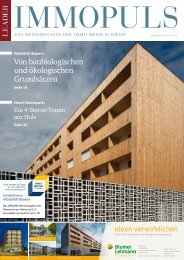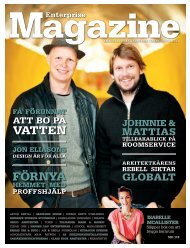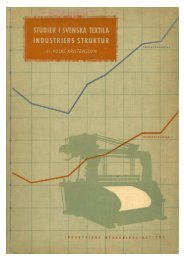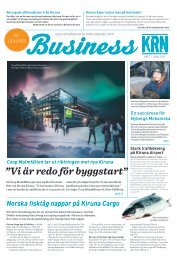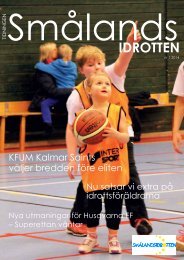Business Black Box
This year, celebrate the holidays with your loved ones at the Courtyard Marriott Downtown. Nestled at the center of Greenville’s dynamic Downtown District, you will be steps away from the charming United Community Bank Ice on Main, as well as the vibrant shops and restaurants along Main Street. As the streets come alive with the spirit of the season, join us and create memories that will last forever. Make your reservations today to add some magic to your holiday season.
This year, celebrate the holidays with your loved ones at the Courtyard Marriott Downtown.
Nestled at the center of Greenville’s dynamic Downtown District, you will be steps away
from the charming United Community Bank Ice on Main, as well as the vibrant shops
and restaurants along Main Street. As the streets come alive with the spirit of the season,
join us and create memories that will last forever.
Make your reservations today to add some magic to your holiday season.
You also want an ePaper? Increase the reach of your titles
YUMPU automatically turns print PDFs into web optimized ePapers that Google loves.
By Josh Overstreet<br />
Mill Village Farms is more than just a few gardens sprinkled across the Upstate—<br />
it’s a chance for young men to find a cause and for food deserts to become<br />
a wealth of local produce. And Dan Weidenbenner knows:it takes a village.<br />
A generation’s success,<br />
or lack thereof, is vitally<br />
dependent on those who<br />
come before it. Many use<br />
the word stewardship—<br />
however stewardship is just<br />
as important when we realize<br />
that we are responsible for the<br />
next generation.<br />
“To be able to take a kid that<br />
hasn’t had a job before and teach<br />
them a work ethic, to teach<br />
them to think entrepreneurially,<br />
to get them to see a part of<br />
a business and to have the<br />
responsibility of showing up to<br />
work on time and doing your<br />
job with excellence,” says Dan<br />
Weidenbenner, “that’s what gets<br />
me going every day.”<br />
Weidenbenner is the<br />
director of Mill Village Farms,<br />
an organization whose goal<br />
is to plant small, urban farms<br />
in communities where fresh<br />
produce is hard to come by.<br />
Born and raised in<br />
Fort Lauderdale, Florida,<br />
Weidenbenner attended<br />
Furman University and<br />
graduated with a degree in<br />
psychology in 2011. While<br />
at Furman, he participated in<br />
farming outreach and its various<br />
benefits for senior citizens.<br />
“We did a bunch of different<br />
things—what were the<br />
cognitive benefits, what were<br />
the social benefits, what were<br />
the environmental benefits of<br />
seniors involved in gardening<br />
and farming.” During the<br />
outreach, he found that the<br />
use of gardening helped<br />
improve quality of life, built<br />
stronger communities, and also<br />
increased the attention rates of<br />
aging people.<br />
After graduating he began<br />
working with Grace Church<br />
and Masha Lending, building<br />
contacts and getting involved<br />
with the community that<br />
would lay the foundations for<br />
his future career. His work<br />
with Grace Church took him<br />
to Allendale, S.C., and while<br />
there, Weidenbenner’s eyes<br />
were opened to the needs<br />
of the community. Soon,<br />
he realized that there are<br />
communities in Greenville<br />
who have the same needs.<br />
“I was exposed to all kinds of<br />
needs and issues that opened my<br />
eyes to a whole different world,”<br />
says Weidenbenner, “I knew the<br />
same needs and issues were in our<br />
community as they were there.”<br />
So, he returned to Greenville<br />
to the Greater Sullivan<br />
neighborhood and joined<br />
Long Branch Baptist Church.<br />
Weidenbenner quickly saw<br />
that the church had a vision for<br />
not only meeting the spiritual<br />
needs in the community, but<br />
also the physical.<br />
“The immediate need for<br />
our neighborhood is that people<br />
need jobs; they just don’t come<br />
easily anymore,” he says. “A job<br />
has a transformative quality, it<br />
teaches the value of hard work.”<br />
With this vision, Mill Village<br />
Farms was created to start<br />
impacting the community’s<br />
youth and through them<br />
transform neighborhoods. By<br />
reaching the kids and giving<br />
them jobs, Mill Village Farms<br />
can then have those teens<br />
impact their own homes.<br />
“We take vacant properties<br />
in our neighborhood that are<br />
either condemned houses or<br />
property that was never built<br />
on, then turn them into small,<br />
dense farms where we can grow<br />
a lot of food in a small area,”<br />
Weidenbenner says.<br />
Since their start in 2012,<br />
they now currently employ<br />
10 kids with two farms in the<br />
Mill’s Mill community as well<br />
as another 50 acres off of Saluda<br />
Dam Road in Easley. They drive<br />
the kids to the farm in Easley<br />
where they work on the farm,<br />
then take the produce back to<br />
their communities.<br />
Other partnerships have<br />
been built along the way—<br />
one with Clemson to help<br />
entrepreneurial education for<br />
the youth and another with<br />
Loaves and Fishes to begin using<br />
one of their refrigerated trucks<br />
to begin a mobile market.<br />
“A lot of kids start seeing<br />
the farm as a stepping stone to<br />
better jobs, colleges and starting<br />
their own businesses,” he says,<br />
noting that when the kids move<br />
on to their next step, other<br />
kids see that step and decide to<br />
begin working as well, changing<br />
their neighborhoods from the<br />
ground up.<br />
“The kids are able to shape<br />
their culture. The kids give<br />
back to the neighborhood<br />
and the neighborhood wants<br />
to give back to the kids,” says<br />
Weidenbenner. And as an added<br />
bonus, “They are now eating<br />
healthier because the kids are<br />
the ones changing the culture.”<br />
In addition to renewing these<br />
older communities through<br />
their teens, other benefits have<br />
appeared with the urban farms.<br />
According to Weidenbenner,<br />
the farms have increased<br />
biodiversity, beautified vacant<br />
properties, increased storm<br />
water management and created<br />
community relationships.<br />
In the short term, Mill Village<br />
Farm’s next goal is to create a<br />
central hub for themselves.<br />
“Short term we want to<br />
create a system to process our<br />
produce. We would love to create<br />
a hub—a space for Mill Village<br />
farms to have a classroom, office<br />
and work space,” he says, “then<br />
within five years we would like<br />
to develop for-profit businesses<br />
that help fund our non-profit,<br />
with more opportunities for<br />
our kids and others to come<br />
alongside and help our business<br />
sustain itself.”<br />
But even at its most basic, the<br />
economic impact of Mill Village<br />
Farms is impressive. After all, if<br />
just one of the kids creates a new<br />
business through Mill Village,<br />
then South Carolina will have<br />
five to 10 more jobs that didn’t<br />
exist before. “The success of our<br />
farms is the success of our youth.<br />
If they are not successful, than our<br />
farms are not going to be that<br />
successful,” says Weidenbenner.<br />
Q4 2013 // <strong>Business</strong> <strong>Black</strong> <strong>Box</strong><br />
71<br />
For more from <strong>Business</strong> <strong>Black</strong> <strong>Box</strong> visit insideblackbox.com






